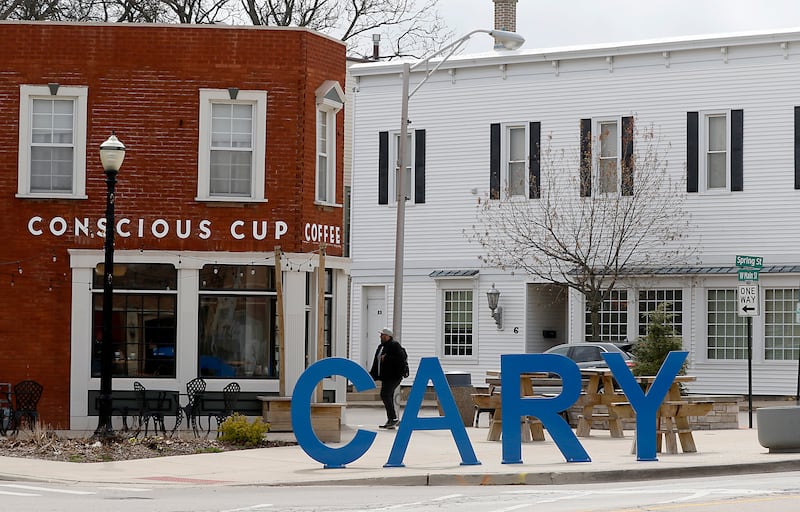Cary officials seem to be on board with adding both a non-home rule general sales tax and to continue a 1% grocery tax for next year.
Village trustees all agreed in a discussion Tuesday that the taxes would be necessary to fund future projects such as public infrastructure. The board is expected to vote on the matter at its Aug. 5 meeting.
[ What shoppers pay in sales tax in each McHenry County town ]
Many municipalities have made the move to a local 1% grocery tax after Gov. JB Pritzker and state lawmakers voted to remove the statewide tax last year. The tax, although implemented by the state, funded local municipalities.
Losing the 1% grocery tax would take away an estimated $600,000 from Cary’s budget, according to village documents. Multiple municipalities in McHenry County have signed up to continue on the grocery tax including Algonquin, Huntley and Marengo.
“We have a road fund that’s not sustainable,” Cary Mayor Mark Kownick said. “We’ve got $65 million worth of projects that are unfunded to date over the next decade or so, so we’re going to try to do what we can to maintain our current level of funding without being such a burden on our residents.”
Currently, Cary’s annual Motor Fuel Tax revenue of $750,000 falls far short of the estimated $2.75 million per year required to hit a “satisfactory” level with roads and other public infrastructure systems, according to village documents.
Municipalities that wish to continue with a local grocery tax without any lapses in revenue must file an ordinance with the Illinois Department of Revenue by Oct. 1.
Separately, Cary officials are looking to add a 1% non-home rule general sales tax, too. This tax was approved by the state legislature, allowing non-home rule communities to implement a local sales tax of up to 1%, in 0.25% increments, without a referendum. Historically, non-home rule communities had to get voter approval to enact a local sales tax. Last year, Cary voters by a wide margin rejected a village bid to become a home rule community. The village had hoped to enact a 1% sales tax with that home-rule authority, had the referendum passed.
If passed by the Village Board, the non-home rule taxes and the grocery tax would go into effect Jan. 1, when the statewide grocery tax sunsets.
The village estimates the 1% general sales tax would bring in an extra $750,000 annually, according to village documents. Currently, the village does not have a general local sales tax. Local shoppers currently pay a total of 7.25%.
Categories subject to the sales tax would include general merchandise, apparel, furniture, lumber, building and hardware, automotive and gas stations, agriculture and manufacturers. It would not apply to necessities such as food, medical prescriptions and medical equipment.
The city of Woodstock, which has home rule authority, just passed a 0.25% sales tax increase this week. Effective Jan. 1, shoppers will pay an 8.5% sales tax.
An earlier version of this story had an incorrect date for the Cary Village Board’s vote on the sales tax. That’s expected to happen Aug. 5.
